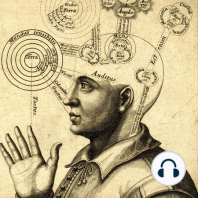108 min listen

Podcast for Social Research, Episode 33: Ecology, Community, Prosperity: a Conversation with Eliza Griswold
Podcast for Social Research, Episode 33: Ecology, Community, Prosperity: a Conversation with Eliza Griswold
ratings:
Length:
72 minutes
Released:
Jun 1, 2019
Format:
Podcast episode
Description
What is the price of fracking? In the 33rd episode of the Podcast for Social Research, Eliza Griswold, author of the Pulitzer Prize-winning Amity and Prosperity: One Family and the Fracturing of America, joins BISR's Ajay Singh Chaudhary for a wide-ranging conversation about fracking (what it is and what it does), energy politics, rural economies, corporate and regulatory collusion, resistance, and the economics of ecological sustainability. Is increased natural-gas extraction economically necessary—or even desirable? What role do governmental agencies play? In rural communities, why do landowners sign fracking leases, and who ultimately benefits? Can an energy-based economy be both productive and ecologically sustainable—or is some alternative necessary to mitigate the very worst effects of climate change?
Released:
Jun 1, 2019
Format:
Podcast episode
Titles in the series (99)
The Podcast for Social Research, Episode 23: Dire States: Episode twenty-three of the podcast is a live recording hosted by Caveat Space. Just Before Trump delivered his first State of the Union, guests Sarah Jaffe (the Nation Institute) and Kazembe Balagun (Rosa Luxemburg Stiftung) and BISR’s Ajay Singh... by The Podcast for Social Research